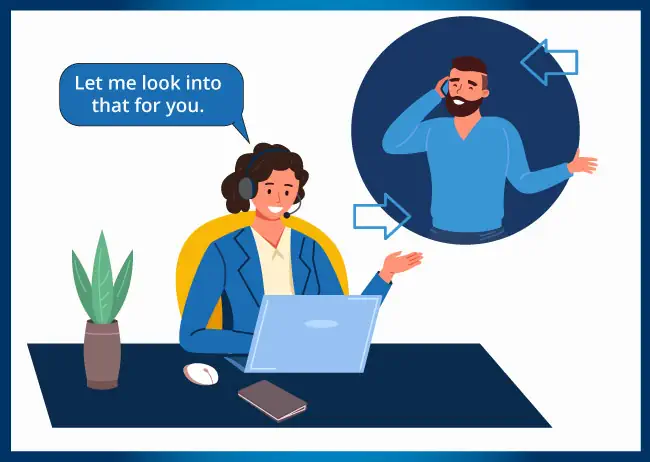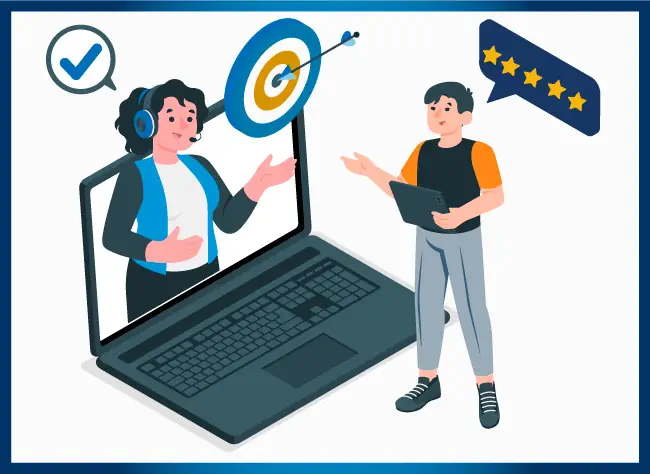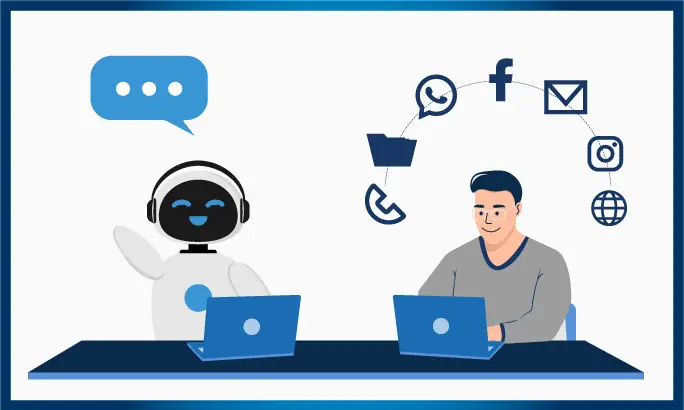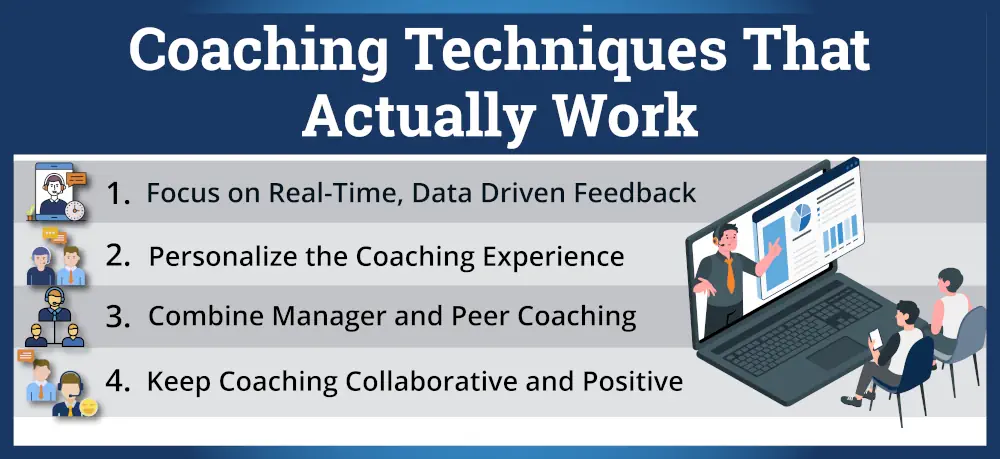The expectations placed on today’s call center agents are higher than ever. Customers don’t just want quick answers—they want meaningful interactions, personalized service, and seamless support across multiple channels. And while automation and AI are helping streamline routine tasks, the human element is still the most powerful tool in delivering exceptional customer experiences.
For call center leaders, this means hiring agents with the right mix of technical and interpersonal skills—and, just as importantly, providing them with the training and coaching needed to thrive in a fast-paced, customer-first environment. Successful agents aren’t born; they’re built through consistent development, feedback, and support.
In this blog, we’ll break down the most critical skills call center agents need today—and provide actionable strategies for how to train and coach your team for long-term success.
Why Do Skills Matter More Than Ever?
The role of a call center agent has evolved dramatically in recent years. It’s no longer just about answering phones or following scripts. Modern agents are expected to troubleshoot complex problems, navigate multiple systems, manage customer emotions, and deliver consistently high-quality service—often all at the same time.
This shift is driven by several key factors:

Rising customer expectations: Consumers now demand fast, accurate, and empathetic support—regardless of channel or time of day.

The complexity of tools and systems: Agents often juggle multiple platforms, from CRMs to chat systems to AI tools.

Remote and hybrid work environments: Many agents now operate independently, making self-sufficiency and digital fluency more important than ever.
In this context, investing in skill development is no longer optional—it’s a competitive necessity. Companies that prioritize agent growth not only improve customer satisfaction and retention but also see higher employee engagement and lower turnover.
In the next section, we’ll explore the essential skills every agent needs to succeed in this environment—and how to develop them through targeted, effective training.
What Core Skills Do Call Center Agents Need and How Can You Develop Them?
To deliver standout customer experiences, call center agents need more than just product knowledge—they need a well-rounded skillset that blends communication, empathy, technical know-how, and adaptability. Below are the key skills your agents need to succeed today, along with practical ways to help them develop and strengthen those abilities.
1. Communication Skills
Effective communication remains the cornerstone of customer service. Agents must clearly explain solutions, ask the right questions, and manage tone—especially over the phone, where body language isn’t available. According to call center research, 78% of customers will forgive a mistake if the service rep is excellent at communication.
For example, an agent who uses positive phrasing (“Let me look into that for you” instead of “I don’t know”) can reduce customer frustration even when delivering bad news.
How to train it:
- Review real call recordings to highlight best practices in tone, pacing, and empathy.
- Use mock calls or live role-playing to improve verbal delivery and listening skills.
- Invest in speech analytics tools to track communication trends at scale.

2. Emotional Intelligence (EQ)
EQ enables agents to connect with customers, manage emotional reactions, and handle difficult conversations gracefully. A study by Harvard Business Review found that EQ is responsible for nearly 60% of job performance in customer-facing roles.
For instance, a frustrated customer might begin a call angrily due to a billing error. An agent who recognizes the emotion, stays calm, and validates the concern (“I can see why that would be frustrating”) can turn the conversation around.
How to train it:
- Facilitate empathy-building exercises using customer feedback and personas.
- Encourage journaling or post-call reflections to build self-awareness.
- Incorporate emotional recognition scenarios into onboarding programs.
3. Problem-Solving Abilities
Modern call center agents often go off-script to resolve complex, unexpected issues. Strong problem-solving skills reduce escalation rates and improve first-call resolution (FCR). In fact, a higher FCR rate can improve customer satisfaction by up to 20%, according to SQM Group.
For example, an agent handling a service outage not only provides the status update but offers a workaround and compensates the customer proactively.
How to train it:
- Use case-based learning with limited information to mimic real-world ambiguity.
- Create “problem of the week” challenges for team brainstorming.
- Celebrate creative solutions to common customer pain points.

4. Product and System Knowledge
Agents must quickly access and relay accurate information about products, policies, and procedures. A lack of product knowledge is one of the top reasons customers get frustrated.
For instance, a knowledgeable agent who can cross-sell or upsell based on a customer’s needs increases both satisfaction and revenue.
How to train it:
- Offer searchable digital knowledge bases that are easy to update.
- Implement bite-sized training modules with interactive quizzes. Encourage product walkthroughs hosted by product or sales teams.
5. Resilience and Stress Management
Call center work can be emotionally taxing. Agents must be able to handle angry customers, back-to-back calls, and performance pressure—all while staying positive. Research shows that high agent stress correlates directly with burnout and turnover.
For example, after a challenging back-to-back shift, resilient agents recover and maintain quality, while less-resilient ones may disengage or make avoidable errors.
How to train it:
- Provide access to mental health resources and employee assistance programs.
- Integrate short mindfulness or breathing practices into shift changes.
- Normalize team debriefs after high-volume days or tough customer interactions.

6. Time Management & Multitasking
Agents juggle multiple systems and conversations simultaneously, often under strict time limits. Poor time management leads to longer handling times and reduced productivity.
For instance, an agent efficiently toggling between a CRM, knowledge base, and live chat to support a customer prevents unnecessary call transfers and reduces queue times.
How to train it:
- Simulate multitasking environments with mock customer interactions.
- Audit time logs to identify and eliminate process inefficiencies.
- Provide dual-monitor setups and hotkey training to streamline workflows.
7. Adaptability and Tech Savviness
The call center tech stack is evolving rapidly, with AI tools, bots, and omnichannel platforms becoming standard. Agents must adapt quickly to change and feel confident using new tools.
For example, an adaptable agent learning to work alongside an AI copilot can reduce average call time while maintaining personalized service.
How to train it:
- Give agents hands-on access to “sandbox” environments before launching new tools.
- Host regular lunch-and-learn sessions or tech tutorials.
- Solicit agent feedback on new platforms to improve adoption and UX.

8. Team Collaboration
A high-performing call center runs on collective knowledge. When agents collaborate, share solutions, and support one another, everyone wins—including the customer.
For example, an agent stuck on a technical issue turns to a peer via a shared chat channel and resolves the issue mid-call—saving time and avoiding escalation.
How to train it:
- Use collaboration platforms like Slack, MS Teams, or Zendesk to build knowledge-sharing communities.
- Recognize team wins, not just individual performance metrics.
- Create buddy systems or rotating peer mentorship programs.
What are Some Coaching Techniques That Actually Work?
Training is essential, but it’s only the beginning. The real impact happens when skill development is supported by thoughtful, ongoing coaching. Unfortunately, many call centers still rely on outdated coaching models that focus on compliance and correction rather than growth and engagement.

To build confident, capable agents, consider these proven coaching strategies:
1. Focus on Real-Time, Data-Driven Feedback
Don’t wait for quarterly reviews to offer insights. Use QA tools and performance dashboards to deliver timely, specific feedback based on real interactions. Highlight what the agent did well before identifying areas for improvement.
Pro tip: Use screen recordings and sentiment analysis to make coaching more tangible.
2. Personalize the Coaching Experience
One-size-fits-all coaching rarely works. Each agent has different strengths, challenges, and goals. Customize your coaching sessions to reflect individual needs, and co-create development plans that give agents ownership over their growth.
Pro tip: Let agents choose one skill they want to focus on each month.
mySQM™ QA - Agent Self-Coaching feature lets you easily personalize coaching sessions using real-time data from customer feedback and call evaluations. Create targeted development plans, track progress over time, and empower agents to take ownership of their improvement journey.
4.6




 Stars on G2 for mySQM™ Auto QA Tool Reviews
Stars on G2 for mySQM™ Auto QA Tool Reviews












3. Combine Manager and Peer Coaching
While manager-led coaching is essential, peer coaching can be just as powerful. Encourage high-performing agents to mentor new hires or lead team learning sessions.
Pro tip: Rotate “Agent of the Month” into a peer coach role for skill-sharing.
4. Keep Coaching Collaborative and Positive
The best coaching creates a safe space for growth. Instead of framing feedback as a list of what went wrong, approach it as a joint effort to improve. Use questions like, “What do you think went well on this call?” to encourage self-reflection.
Pro tip: End every session with one actionable goal and a follow-up plan.
